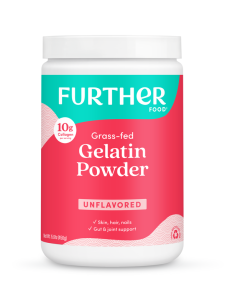GLUCOSE NUMBERS and KETOGENIC DIET
When eating a ketogenic diet, the most exposure to carbohydrates is overnight especially towards morning as the liver produces glucose to keep your brain fueled and to prepare you for getting up. Therefore, if you are eating a very ketogenic diet, the blood ketones go up during the day as you burn more fat for fuel (as apposed to a high carb diet where the opposite happens).
Something to consider, a ketogenic diet rapidly induces insulin resistance. This is a normal physiological response to carb restriction. Carb restriction drops insulin levels. Low insulin levels activate hormone sensitive lipase. This breaks down fatty tissue into ketone bodies (blood ketones). Your muscles prefer to run on ketones and so they become insulin resistant leaving the glucose in your blood for other cells (like the brain).
However, while muscles are in “refusal mode” for glucose any glucose put into your bloodstream, from food or gluconeogenesis (blood glucose made from protein or other tissues), will rapidly spike blood glucose. This is fine if you stick to LC in your eating. It also means that if you take an oral glucose tolerance test you will fail and be labelled diabetic. In fact, even a single high fat meal can do this, extending insulin resistance in to the next day.
So if you are getting a blood glucose test, you can increase your carbs to 150 grams a day for 3 days prior and your blood glucose levels will show normal according to the standards. Otherwise, you can look at a better marker for metabolic syndrome which is you HbA1c levels. If these are low (5.5 or less is what a doctor will define as low diabetes risk, 5 or less is ideal), it doesn’t matter what your fasting blood glucose levels are.
Also an interesting note, when mice in a recent study by Ortman, Prinzler and Klause were allowed to select their own diet, lo and behold, the mice chose (by calories, not weight!) 82% fat and 5.6% carbohydrate. Sensible mice!
their own diet, lo and behold, the mice chose (by calories, not weight!) 82% fat and 5.6% carbohydrate. Sensible mice!
If you would like to read more on how to become keto-adapted with a “well-formulated” diet, check out my book Keto Adapted.
Click HERE to get a limited edition of the Hard Cover.
Click HERE to get a soft cover.
Thank you all for your love and support!














hi maria,
does this mean that when I am going to do a fasting glucose test (at least 12 hours) for my doctor that I should eat more carbs to the tune of 150 grams a day for 3 days prior to the fasting glucose test? I am sorry if I am confused by this.
Well, that is one way you can “pass” his test. Otherwise, just keep eating the way you are and look at other tests to determine how you are doing (A1C). You don’t have to take the doctors recommendations if you know they are wrong. 🙂
you are just an awesome person and I am so glad I invested in my health with you maria…thank you so very much.
I will continue to advocate for myself through educating myself. I thank you for your help
I just had blood work done, and my glucose level is 108. I just want to make sure this is okay as long as I am eating keto adapted. I know I am eating more protein that I probably should, so this may be the reason. Thanks!
If in ketosis, this should be ok. Could be too much protein and maybe a little physiological insulin resistance. More on that here:
http://high-fat-nutrition.blogspot.com/2007/10/physiological-insulin-resistance.html
Maria-I have noticed that every year soince I have been on this wheat, grain, and sugar free lifestyle, my A1C has gone up. two months ago it was 5.7. i bought a glucose monitor and was able to test fir the first time last night about two hours after dinner-it was 112. it has never been that high. Tested again this morning before breakfast and it was 114. Tested again after breakfast of one egg, one home made sausage pattie, and whole milk with espresso and xylitol to sweeten..went down to 94…does this sound right?
Hmm, not sure. Typically the physiological insulin resistance effects go down over time and as you get more and more keto adapted they less you see of it. Haven’t heard of glucose numbers continuing to go up. Maybe try dairy free for a while.